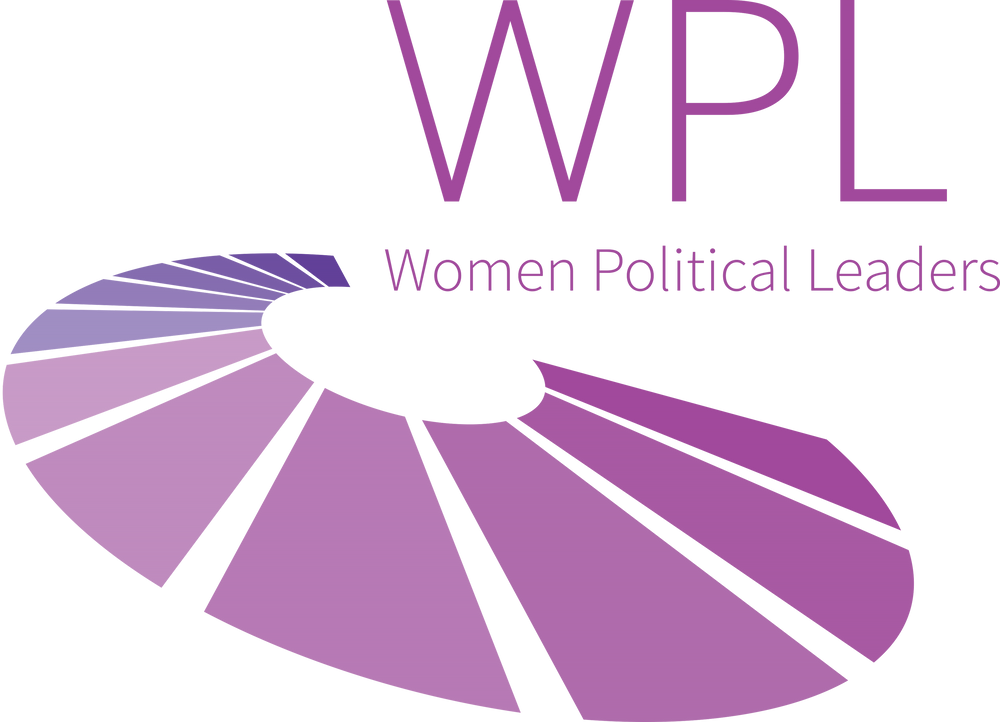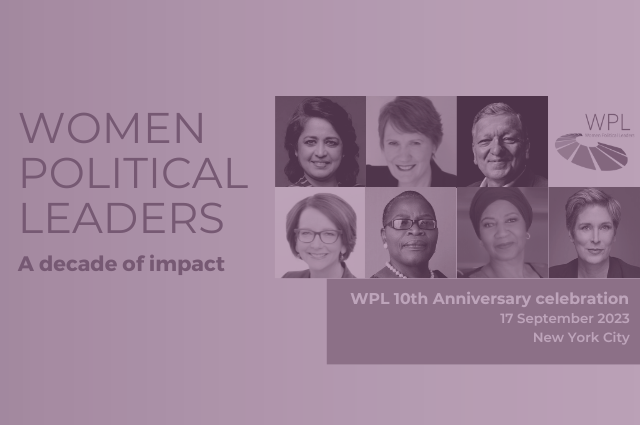As little as a few months ago, the circumstances we find ourselves in today would have been considered by many as improbable. But nurses, doctors, midwives, surgeons, and active members of the healthcare community have had to steel themselves against the surging tide of an unprecedented pandemic with little time, and often meager access to resources, to process what is happening.
Their courage, leadership, and compassion are the cornerstone of every national and international response plan.
Women, as a majority of the healthcare workforce, act as a strong foundation for comprehensive healthcare solutions. Yet, they are still missing from decision-making panels, task forces, and response groups at an alarming rate.
So why aren’t we seeing more women in leadership roles that reflect not only their roles in society, but their commitment and dedication?
On the International Day of Nurses, and in the International Year of Nurses and Midwives, WPL curated a discussion with women political leaders in the area of in healthcare to help raise visibility and awareness surrounding women’s roles in the COVID-19 healthcare response.
The proverb goes “out of sight, out of mind.” These women need to be seen to ensure they will be heard.
Read on to discover some of the essential insights that these women leaders shared with WPL and be sure to explore their full responses and wisdom here.
Overcoming obstacles for better leadership: to lead better, we must have women at the table
Elise Pokossy-Doumbe, Member of the National Assembly, Cameroon
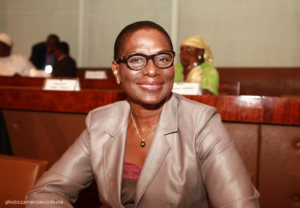
“The midwife who accompanies the woman from the beginning of pregnancy to the birth of the child plays an essential role in the fight against maternal, neonatal and infant mortality. As a woman politician, I hope that women’s leadership will be better recognised and, above all, that women’s involvement in decision-making bodies will have a real dimension.”
Shattering the glass ceiling: why do we dismiss the essentiality of care work?
Ilze Viņķele, Minister of Health, Latvia
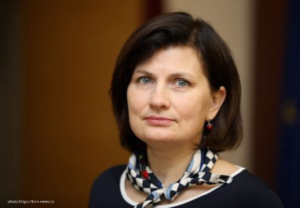
“I truly celebrate the achievements of all the talented and strong women who have proven that glass ceilings can be broken. As a Minister for Health, I also applaud our nurses and midwives for their dedicated work on the frontline. Their leadership inspires all of us. While this pandemic undeniably highlights gendered segregation of work among health care workers, it is known that this issue runs deeper than the current pandemic. “
With great burden comes great responsibility: so why aren’t we giving women more decision making responsibility?
Dr. Inaya Ezzedine, Member of the National Assembly, Lebanon
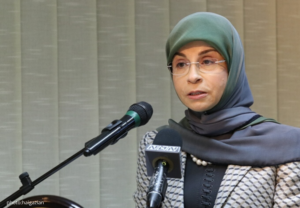
“Female healthcare workers are going above and beyond the call of duty to serve humanity. They have proven and illustrated a high level of leadership and remarkable skills in their professions. Nevertheless, they have not been given equal opportunities to lead. Whether it is within the health sector, its various syndicates or public institutions, the rate of female participation remains far from what it should be, especially when it comes to governance including policy and decision making.”
Unequal power, inferior health care: what would the pandemic look like if more women were in decision making positions?
Dr. Kirsten Kappert-Gonther, Member of Parliament, Germany
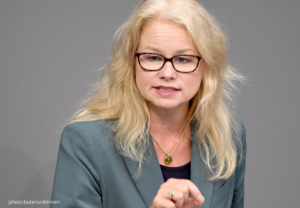
“If midwives got to decide how to run the response to Coronavirus, pregnant women would not be made to feel even more worried being told they cannot bring a partner or companion to the birth. Midwives doing home visits before and after birth, not all of which can be replaced by phone calls, would not have been forgotten in plans to distribute masks and other protective equipment.”
Confronting sexism by changing the operational frameworks
Monica Macha, Member of Parliament, Argentina
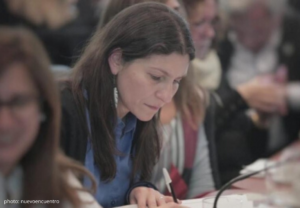
“Female leadership, as long as we remain in a patriarchal society, is always going to be biased and restricted. Of course women lead work processes, they have always done it, and more and more women are participating in decision making. But for this to be reflected, it is also necessary that both power and work should be exercised in a non-sexist way…Otherwise, leadership remains patriarchal and the way of working excludes or oppresses women.”
Changing the leadership dynamic: Women are in a unique position to lead
Soher El Sukaria, Member of the Chamber of Deputies, Argentina

“It is in crisis contexts that women are most burdened. Many of them must continue with their daily work – from home or outside, as is the case with health professionals – with the added burden of the unpaid work they do every day in their homes… it is necessary to highlight the importance of women’s leadership. By this I mean leadership that puts the care of others first, acts quickly and efficiently, and is built from a perspective of empathy, love and perseverance.”
Leading by example: Iceland’s approach to the COVID-19
Svandís Svavarsdóttir, Minister of Health, Iceland
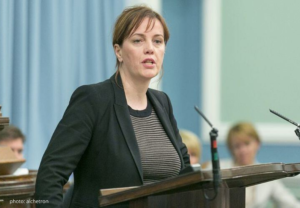
“The strength of our healthcare systems is based to a large degree on women’s empowerment within it and we should ensure that women are also visible leaders in this crisis. The present Director of Health here in Iceland is Alma D. Möller, who took
office on 1 April 2018. She is the 18th holder of the office since the establishment of the Directorate of Health in 1760 and the first woman to hold that position in Iceland.”
An eye for evidence, an ear for leadership: why listening to women in healthcare is an essential component of any COVID-19 response plan.
Toyin Saraki, Founder & President of the Wellbeing Foundation Africa & Goodwill Ambassador for The International Confederation of Midwives
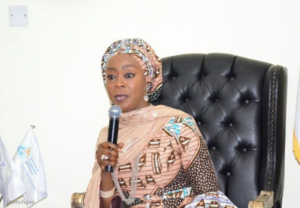
“Whilst I proudly stand with the rest of the health sector in applauding female leaders such as Taiwan’s President Tsai Ing-Wen and New Zealand’s prime minister Jacinda Ardern…we have long way to go to ensure women are included in the decision making spaces to have greater influence in advocating for gender inclusive policies… it is equally as important that women are part of a national and global COVID19 outbreak, preparedness and response teams in governments and multilateral international organisations.”
